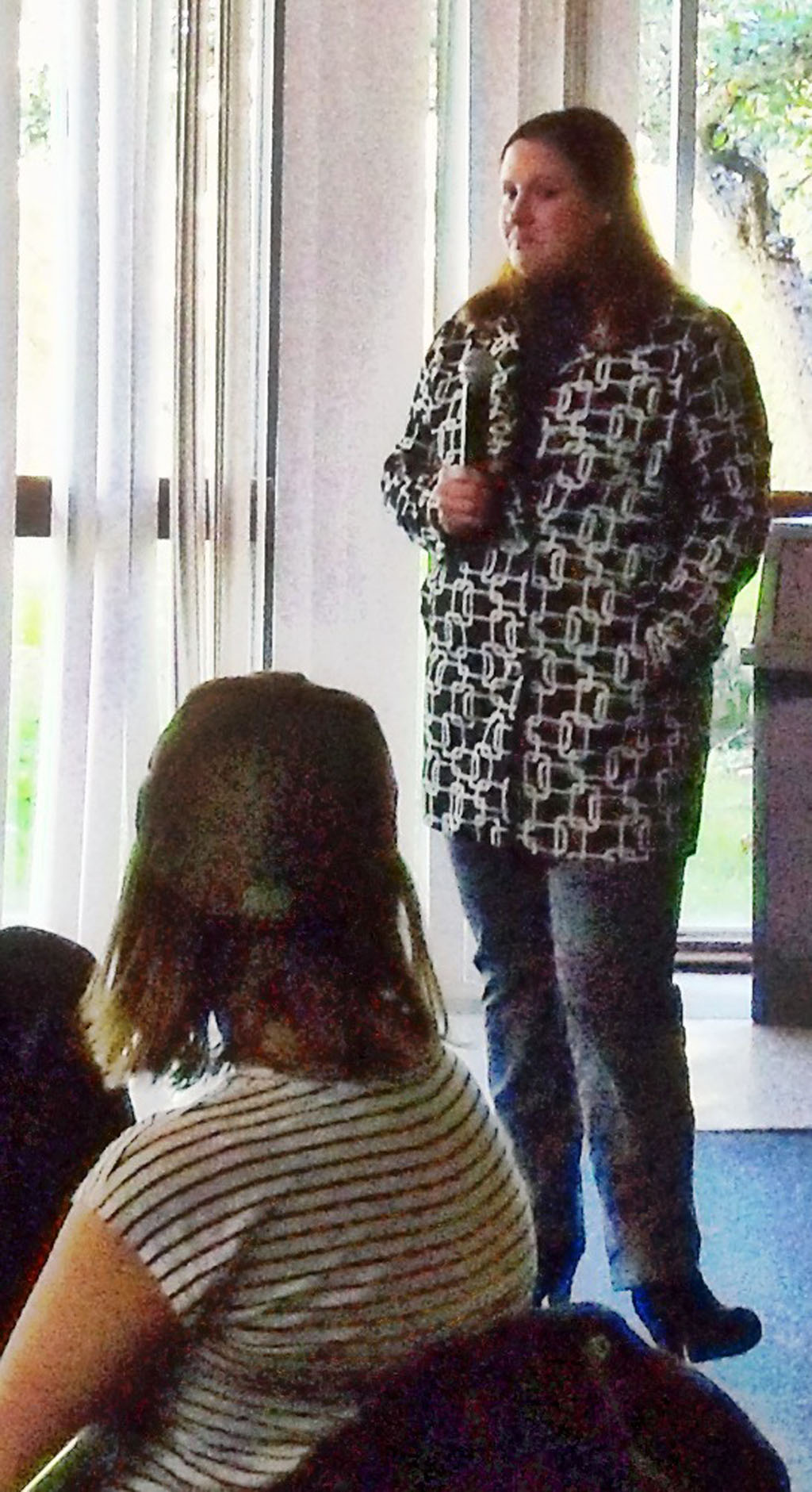By Ashley Fountain, Staff Writer
There are over 2 billion cell phones in use across the planet. Parents have started to provide their children with the devices at a young age. These communication tools allow people to be attached to the world's gossip all day, every day. Has the addiction of cell phones crossed the line? The presentation Texting and Driving: Is It Worth Your Last Word? was held Wednesday, Nov. 3, by the Albany chapter of National Safety & Health council member Lisa Marcella. Moments after beginning her presentation, she left every person in the audience silenced over what she had to share.
"Many of us don't think when we leave in the morning that we could lose our lives to texting, but we should be thinking. I can't stress enough that texting and driving is a danger," said Marcella. "The fatalities are expected to increase by 4 percent each year if we don't change our ways. If I can walk away from here today and have made an impact on one person to help them stop texting and driving, I have done what I came here to do. "
Years ago drunk driving was the main factor in fatal car crashes. Although drunk driving is still a problem, deaths have decreased more than 70 percent in 2010, according to Finlaw.com. On the other hand, deaths caused by texting and driving have topped the fatalities list and have increased 28 percent in 2010, according to the New York Personal Injury Journal. Over the past five years in the New York City area and Long Island area alone, there have been 100 deaths caused by texting and driving.
After watching the clip, one student in the crowd admitted to being in an accident from texting and said, "sadly, as bad as this may sound, my accident didn't make me stop my habit of texting and driving."
Sophomore and audience member Bari Morchower, had previously seen the public safety announcement prior to this presentation. She also admitted that she has been in a car with her friends when her life was placed in jeopardy from their poor driving decisions. "When I first watched the announcement, my roommate was in the room, and I was distracted. I kind of forgot about it. Seeing it again today, I can say I cried harder this time," said Morchower. "I can't believe how many times I have ridden in a car with someone who has been texting or using their iPod while driving. I thank God I am alive today."
Erin Starke, a sophomore who also attended the event found Marcella's presentation to be a very powerful one. Having admitted to hearing about this event while reading a text message at a stop sign in her car, she said, "After today's presentation I will no longer text and drive. I haven't been big on texting and driving because I know I'm not a very good multi-tasker. However, I will definitely read my texts in the car. When you know you got a text message it is hard to resist looking at it," said Starke. "The videos shown by Marcella were real life videos and portrayed a very strong message. If the video's had been censored they wouldn't have had much of an impact on us."
Anita Ellis, director of off campus living and commuter services, said she wanted people of all ages to be more informed of the dangers involved with texting and driving. "Lisa, Joseph Estrema, and I developed this program over the summer, and it came together smoothly," said Ellis. "I am very happy over the publicity we received."
Estrema couldn't agree more. "It was very easy to work with Linda and to help coordinate a program in which I feel is very important for the student body," she said. "Although our office addresses commuters, our events are sometimes relevant to all students."
Veronica Gerosimo, Ellis' graduate assistant also helped put together the program. She believed the main message audience members should take away from the presentation is "Anything can wait ten minutes. An emergency is never going to be texted to you."
According to edgarsnyder.com, 2,600 people die each year from using cell phones while driving. "If you text and drive you're placing everyone else's lives in jeopardy," said Marcella. "Before you get behind the wheel and think to text anyone. Think about how precious your life is, and encourage others to stop this terrible habit, for you may save someone‘s life."

(Ashley Fountain/The Chronicle)


